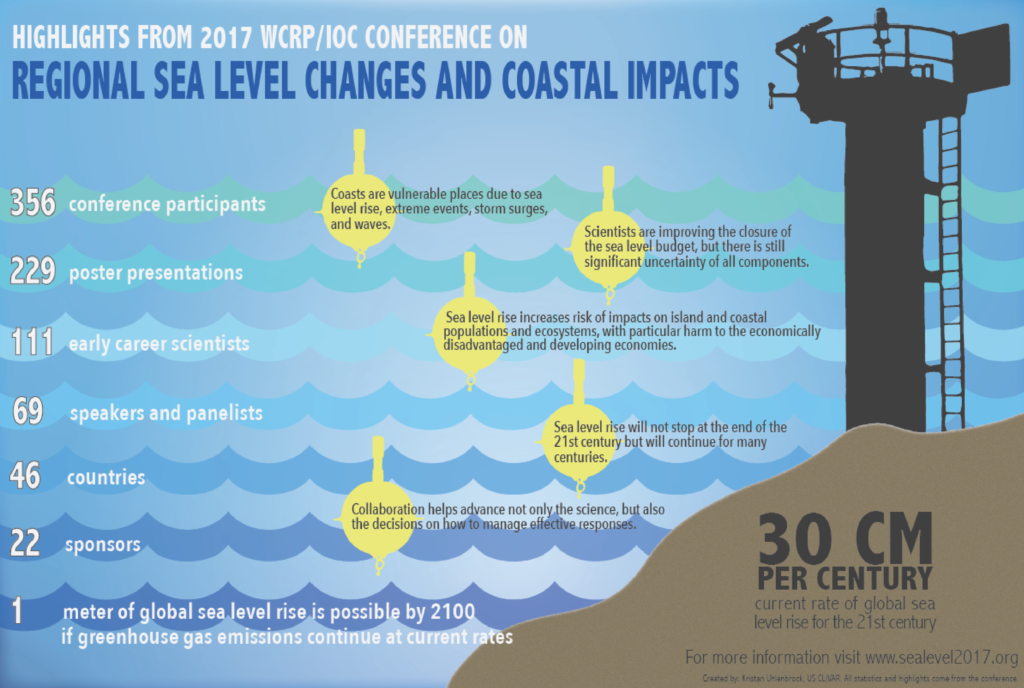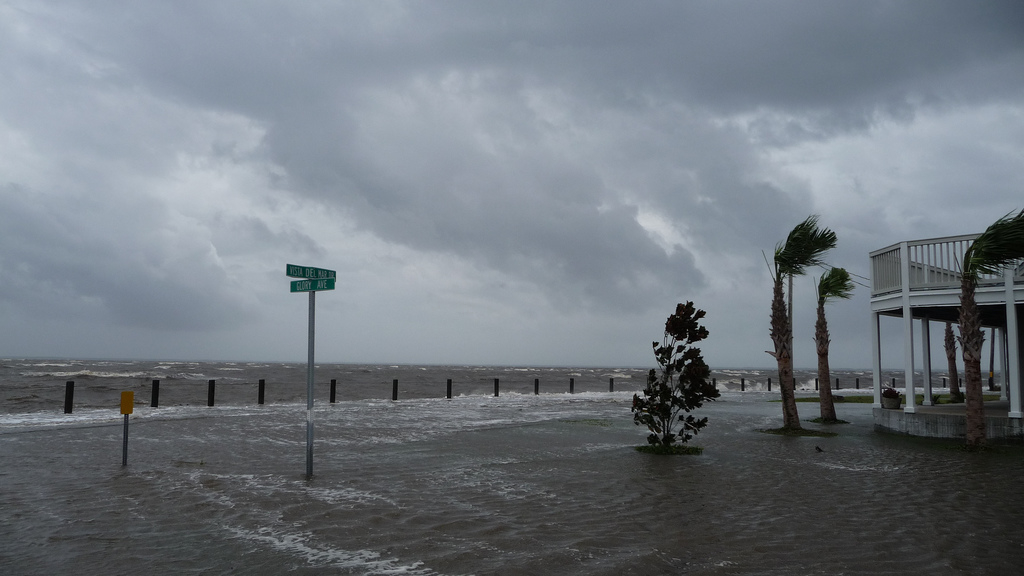WCRP/IOC Sea Level Conference
The global sea level is rising. With continued emissions of greenhouse gases this increase is bound to accelerate and will almost certainly result in several meters of sea-level rise in the next centuries. These are some of the main conclusions of the recently held WCRP/IOC Sea Level Conference at Columbia University in New York. NESSC was one of the sponsors of the conference that focussed on a variety of aspects related to sea level rise. Several NESSC-scientists contributed to the conference, in particular Roderik van de Wal, who also was part of the Science Organizing Committee.

More than 350 participants from 42 nations attended the five-day WCRP/IOC Sea Level 2017 Conference. Conference participants, representing natural scientists, social scientists, coastal engineers, managers and planners, discussed evidence indicating that sea-level rise represents a major challenge for coastal societies.
In a concluding statement, the gathered scientists recognized that sea-level rise has accelerated due to global warming over the past 100 years. The two largest contributions to the rising sea level are the expansion of the oceans as they warm and the addition of mass from melting glaciers. The largest uncertainty and concern in this respect is the stability of the ice sheets in Greenland and Antarctica. Substantial mass loss from these ice sheets would have significant consequences for global sea level rise.
Extreme events
The scientists further note that an immediate impact of rising sea-levels occurs due to an increased likelihood of extreme sea-level events, such as higher tides and storm surges during massive storms and hurricanes. Increased frequency of extreme sea-level events and increased impact of storm surges and waves are already being observed, the scientists write. Major human and economic losses have occurred in recent years as a result of storm surges, like Hurricane Katrina in 2005, the cyclone Nargis in 2008, and quite possibly, also hurricane Harvey, which recently struck the Houston area.

Adaptation
Both climate mitigation to reduce emissions and adaptation to deal with rising sea levels will be needed to respond to the challenges of sea-level rise, the scientists write. Adaptation offers many possible measures, which, when planned appropriately, are highly effective in managing coastal risks and impacts. The conference recognizes the need for an enhanced and internationally coordinated new sealevel change program, including the provision of appropriate sea-level change climate services as part of a wider sea-level rise impact and adaptation effort.

